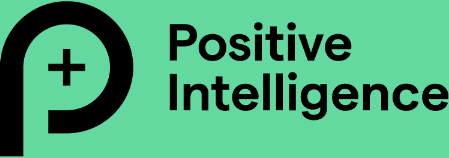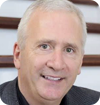Have you ever been confused or discouraged when you’ve discovered that a team is not performing as expected or a team member isn’t fitting in? What happened? Did you inherit leadership of the team or personally assemble it? Has the team climate changed dramatically, maybe a pandemic has set in? Sadly, that is our reality six months into COVID-19.
What Makes People Tick?
In our leadership consulting and coaching practice, I am continually challenged to try to find out what makes individuals and teams tick in rapid order. Diagnostics assessment tools are valuable aids in helping leaders and their teams move towards plausible solutions to grow in healthy ways.
Everything in life centers on measurement—money, time, trave, volume, temperature, stock indexes—the list is endless. Yet, in our experience most people do not have adequate measurement strategies to help improve their personal performance, teams, culture or even establish their career or life path. If during an appointment, your doctor simply guessed your temperature or blood pressure without using the correct equipment, you would think he or she was a quack – certainly not someone you would trust with your life. Coaching and organizational development is no different. Coaching without using assessments is like your doctor guessing your temperature – professionally not acceptable.
What Do We Assess?
A key question is whether the diagnostics start at the individual level or with a focus on the overall team climate. Well, the answer is either one, both or it depends. I will focus on the later.
My personal bent is that much of aggregate or team behavior stems from what individuals bring of themselves to the team. Their attitudes (head), beliefs (heart) and the level of aligned activities (hands), all commonly referred as personality, IQ, EQ, style, values, purpose, even obvious habits. Looking at each individual on a team to help them discover themselves and how they interact with each other is never a wrong decision.
It’s sometimes a challenge to find the right people for a job alone, so combining team fit as well can be a ‘big ask’. Individuals need to have mastered the technical or professional Skills required to succeed, but also need the Will in the form of attitude, personal discipline, and people skills plus the Horsepower (ability to grow in competency) required for alignment and fit with the organization and its values (EQ).
… But How do we find out about this Skill, Will and Horsepower? IQ, EQ, habits? What can be done?
Assessment Help Make Better Decisions
Our experience values the use to a range of diagnostic assessments to assist in decision making. The assess options are many; performance evaluations, learning development plans, business competencies, values based, sales and service, time mastery management, communication styles, and a range of sophisticated psychometric assessments that explore subconscious behavior which is often attributed to over 90% of our actual behavior. We recommend and offer a variety of these to help individuals move forward in their personal effectiveness contributing to the team.
Choosing the right assessment can make a difference in helping you build teams with complementary Skills, Will and Horsepower. Leveraging strengths can help you build a better team. As will mending weaknesses and ensuring proper alignment
Aligning Assessment Results To Optimize Team Climate
As a leader, you want your company’s team climates to be as positive and efficient as possible. The more you understand how the people in your team work together, the better you can cultivate a culture that enables them to avoid issues. A major part of this is ensuring that every employee is in the role best suited for them, based on not only skill and will but also personality. For instance, an introverted worker might want a more independent position, while an extroverted employee might enjoy collaborating with others. Knowing what works well for each person helps unify your team, with every member doing their preferred part.
Some personalities simply do not work well together. Resultant clashes can lead to stalled projects, workplace tension and even fighting. Using assessments will allow you to build teams based on the personalities of individual team members, leading to far more compatible teams. Taking compatibility into consideration can help to reduce personality clashes that lead to delays in work. It also can help to fill all of the unique roles that the project requires and move your projects along. By taking the time to create teams based on how people respond in certain situations, you can be more confident in their potential success.
This type of testing also lets employers better understand their employees and get to know them better, which, in turn, can improve workplace productivity.
We can help you create a more unified team by using a range of assessments and analyzing the responses. Bringing a holistic approach with the right assessments at the right time into the team coaching process, will increase professionalism, improve results, save time, bring consistency to processes, while providing the opportunity for enhances financial performance. Change and growth are impossible without awareness. Without some type of assessment strategy, how can leaders ask the right questions and make wise decisions. The fact is, they can’t. While assessments may only be one part of the process of building a great team, they are one of the most efficient and effective strategies to provide you with a strategic and tactical advantage.
The Author
David Smith, BComm, CMC, ACC, RPM has over 30 years of experience as an organizational leader and a decade as certified executive coach, facilitator and management consultant. He has served as a corporate executive (CEO), business owner and entrepreneur in multiple start-ups in different industries including one of Canada’s ‘50 Best Managed Companies’ and is Co-Founder of Virtual Leadership Matters Inc.




